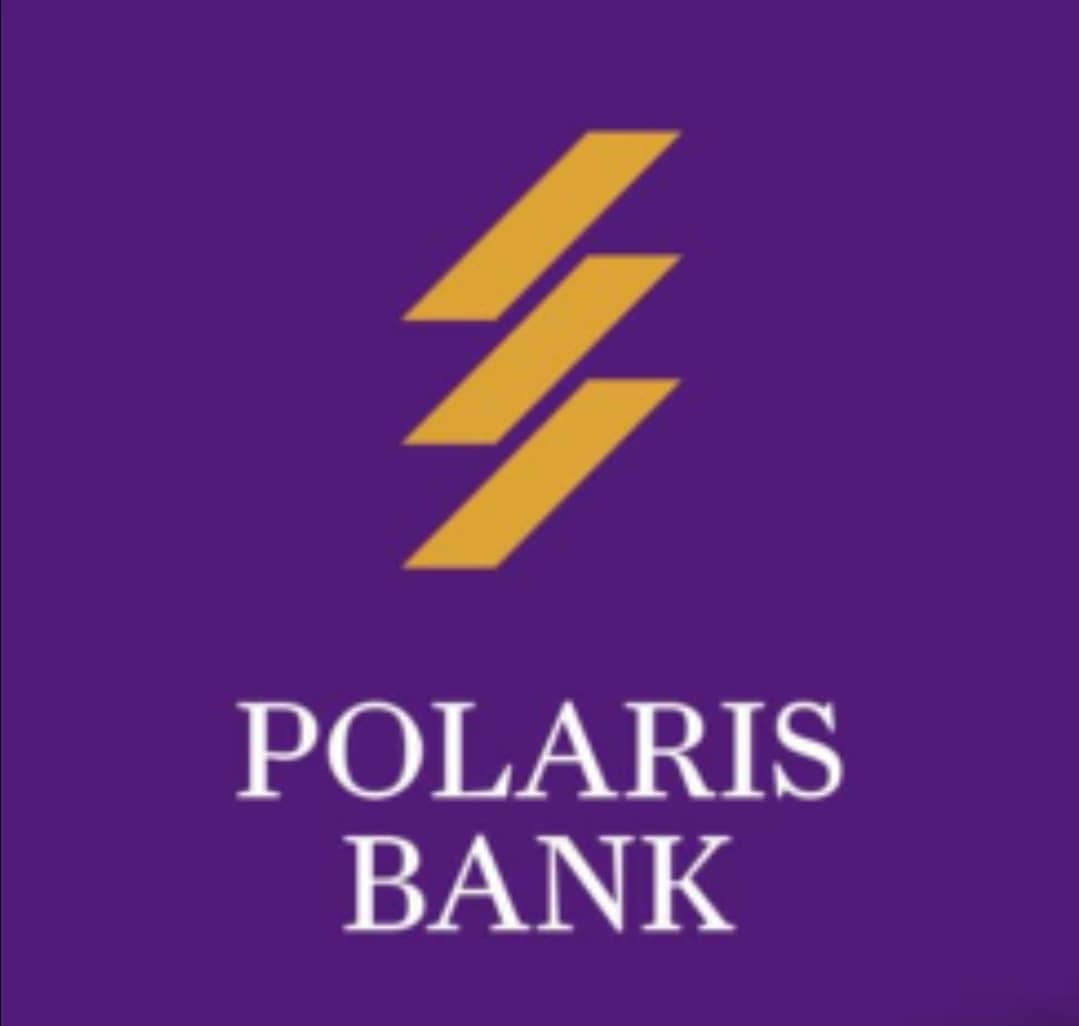Business
Polaris Bank’s Media Capacity Workshop excites Participants

Polaris Bank’s Media Capacity Workshop excites Participants
The much anticipated Polaris Bank Limited sponsored media capacity building workshop for online publishers held last Friday.
The well-attended virtual workshop had both respected industry resource persons as anchors and renowned online publishers, among others as participants.
Declaring the workshop open, Head, Corporate Communication and Group Head, Strategic Brand Management of Polaris Bank, Rasheed Bolarinwa and Nduneche Ezurike said the Bank is driven by a strong motivation to ensure a healthy media space in the country hence its decision to sponsor on a yearly basis, special training sessions to build and deepen capacity for media practitioners across the Online, Print and Broadcast spectrum. The duo disclosed that feedbacks from previous editions which held physically in Lagos, Port Harcourt and Abuja were encouraging enough for the Bank to maintain the status quo despite the devastating effects of the COVID-19 pandemic.
They assured Journalists that the media capacity workshop which runs in batches, will be maintained to reach greater number of media practitioners across the country.
The two-session webinar focused on sensitive media issues such as; ‘ *The Cyber Crime Law and You’* anchored by Barrister Eric Ojih and ‘ *Media Ethics In The Age of Online Journalism’* anchored by popular Journalist and social commentator, Ayo Aluko-Olokun.
The facilitators in their highly rich presentations took turns to educate participants on the need to be cautious while discharging their media roles. According to them, the media is a powerful tool that can be used to either make or mar a nation depending on how it is deployed.
The core journalists must differentiate themselves from the phone and data people who just pick, share or publish information without any journalistic vetting, gatekeeping or verification. The world is so fragile that any one sharing unverified and inciting information can set it on fire in minutes. If you are not sure of the source or authenticity of any information, the best thing is to leave out to avoid causing chaos and avoidable panic in your immediate and larger environment’, Aluko-Olokun told participants.
“Be guided by the Social Responsibility theory of of the media where he admonished journalist to practice responsibly. It is an obligation of a journalist to commit to upholding professional standard by being truthful, accurate and balance in his/her reporting, and conscious of the environment within which it operates especially in a multicultural society like ours. That way, we would be promoting peace rather than chaos I’m Nigeria. Aluko-Olokun admonished.
On his part, Barrister Ojih said online journalists could shoot themselves on the leg if they do not take time to familiarise themselves with the dictates of the Cyber Crime Law in Nigeria, even he quoted copiously relevant sections with ample case studies.
‘The court may compel publishers, reporters and their medium to pay as much as N7m fine or serve up to seven-year jail term or do both if found guilty of a Cyber Offence from Cyber Stalking to Cyber Squatting or Xenophobic contents. And ignorance as we all know is not an excuse before the law. It is therefore imperative that journalists in general take precautionary measures while trying to serve the public so as not to be condemned by the very people they so wish to serve,’ Ojah explained
As a Journalist you must be abreast of all the sections of the Cyber Crine Act & Law of 2010 as it is applicable to journalism practice, especially those of you who have chosen yo ply your trade in the digital space,” the Media Law Experts explained.
Meanwhile, participants took turns to appreciate Polaris Bank and the two anchors after the end of the sessions. They implored the Bank to maintain the lead as it had done in the past while hoping that the world would soon be certified free of the COVID-19 pandemic so the physical editions could resume
Business
Nigeria’s Inflation Drops to 15.10% as NBS Reports Deflationary Trend

Nigeria’s headline inflation rate declined to 15.10 per cent in January 2026, marking a significant drop from 27.61 per cent recorded in January 2025, according to the latest Consumer Price Index (CPI) report released by the National Bureau of Statistics.
The report also showed that month-on-month inflation recorded a deflationary trend of –2.88 per cent, representing a 3.42 percentage-point decrease compared to December 2025. Analysts say the development signals easing price pressures across key sectors of the economy.
Food inflation stood at 8.89 per cent year-on-year, down from 29.63 per cent in January 2025. On a month-on-month basis, food prices declined by 6.02 per cent, reflecting lower costs in several staple commodities.
The data suggests a sustained downward trajectory in inflation over the past 12 months, pointing to improving macroeconomic stability.
The administration of President Bola Ahmed Tinubu has consistently attributed recent economic adjustments to ongoing fiscal and monetary reforms aimed at stabilising prices, boosting agricultural output, and strengthening domestic supply chains.
Economic analysts note that while the latest figures indicate progress, sustaining the downward trend will depend on continued policy discipline, exchange rate stability, and improvements in food production and distribution.
The January report provides one of the clearest indications yet that inflationary pressures, which surged in early 2025, may be moderating.
Bank
Alpha Morgan to Host 19th Economic Review Webinar

Alpha Morgan to Host 19th Economic Review Webinar
In an economy shaped by constant shifts, the edge often belongs to those with the right information.
On Wednesday, February 25, 2026, Alpha Morgan Bank will host the 19th edition of its Economic Review Webinar, a high-level thought leadership session designed to equip businesses, investors, and individuals with timely financial and economic insight.
The session, which will hold live on Zoom at 10:00am WAT and will feature economist Bismarck Rewane, who will examine the key signals influencing Nigeria’s economic direction in 2026, including policy trends, market movements, and global developments shaping the local landscape.
With a consistent track record of delivering clarity in uncertain times, the Alpha Morgan Economic Review continues to provide practical context for decision-making in a dynamic environment.
Registration for the 19th Alpha Morgan Economic Review is free and can be completed via https://bit.ly/registeramerseries19
It is a bi-monthly platform that is open to the public and is held virtually.
Visit www.alphamorganbank to know more.
Business
GTBank Launches Quick Airtime Loan at 2.95%

GTBank Launches Quick Airtime Loan at 2.95%
Guaranty Trust Bank Ltd (GTBank), the flagship banking franchise of GTCO Plc, Africa’s leading financial services group, today announced the launch of Quick Airtime Loan, an innovative digital solution that gives customers instant access to airtime when they run out of call credit and have limited funds in their bank accounts, ensuring customers can stay connected when it matters most.
In today’s always-on world, running out of airtime is more than a minor inconvenience. It can mean missed opportunities, disrupted plans, and lost connections, often at the very moment when funds are tight, and options are limited. Quick Airtime Loan was created to solve this problem, offering customers instant access to airtime on credit, directly from their bank. With Quick Airtime Loan, eligible GTBank customers can access from ₦100 and up to ₦10,000 by dialing *737*90#. Available across all major mobile networks in Nigeria, the service will soon expand to include data loans, further strengthening its proposition as a reliable on-demand platform.
For years, the airtime credit market has been dominated by Telcos, where charges for this service are at 15%. GTBank is now changing the narrative by offering a customer-centric, bank-led digital alternative priced at 2.95%. Built on transparency, convenience and affordability, Quick Airtime Loan has the potential to broaden access to airtime, deliver meaningful cost savings for millions of Nigerians, and redefine how financial services show up in everyday life, not just in banking moments.
Commenting on the product launch, Miriam Olusanya, Managing Director of Guaranty Trust Bank Ltd, said: “Quick Airtime Loan reflects GTBank’s continued focus on delivering digital solutions that are relevant, accessible, and built around real customer needs. The solution underscores the power of a connected financial ecosystem, combining GTBank’s digital reach and lending expertise with the capabilities of HabariPay to deliver a smooth, end-to-end experience. By leveraging unique strengths across the Group, we are able to accelerate innovation, strengthen execution, and deliver a more integrated customer experience across all our service channels.”
Importantly, Quick Airtime Loan highlights GTCO’s evolution as a fully diversified financial services group. Leveraging HabariPay’s Squad, the solution reinforces the Group’s ecosystem proposition by bringing together banking, payment technology, and digital channels to deliver intuitive, one-stop experiences for customers.
With this new product launch, Guaranty Trust Bank is extending its legacy of pioneering digital-first solutions that have redefined customer access to financial services across the industry, building on the proven strength of its widely adopted QuickCredit offering and the convenience of the Bank’s iconic *737# USSD Banking platform.
About Guaranty Trust Bank
Guaranty Trust Bank (GTBank) is the flagship banking franchise of GTCO Plc, a leading financial services group with a strong presence across Africa and the United Kingdom. The Bank is widely recognized for its leadership in digital banking, customer experience, and innovative financial solutions that deliver value to individuals, businesses, and communities.
About HabariPay
HabariPay is the payments fintech subsidiary of GTCO Plc, focused on enabling fast, secure, and accessible digital payments for individuals and businesses. By integrating payments and digital technology, HabariPay supports innovative services that make everyday financial interactions simpler and more seamless.
Enquiries:
GTCO
Group Corporate Communication
[email protected]
+234-1-2715227
www.gtcoplc.com
-

 celebrity radar - gossips6 months ago
celebrity radar - gossips6 months agoWhy Babangida’s Hilltop Home Became Nigeria’s Political “Mecca”
-

 society6 months ago
society6 months agoPower is a Loan, Not a Possession: The Sacred Duty of Planting People
-

 society5 months ago
society5 months agoReligion: Africa’s Oldest Weapon of Enslavement and the Forgotten Truth
-

 news6 months ago
news6 months agoTHE APPOINTMENT OF WASIU AYINDE BY THE FEDERAL GOVERNMENT AS AN AMBASSADOR SOUNDS EMBARRASSING









